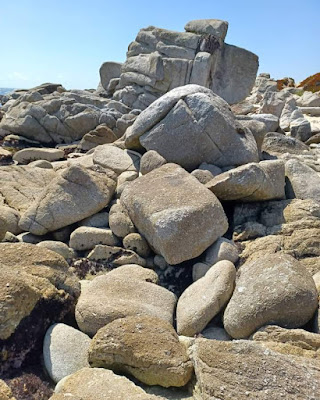 |
Darin at center. I'm at bottom, second from left. Fall 1992. |
The world lost a good one this week: Darin Price, who managed and pitched for the Dukes' softball team in Sunnyvale, California. I played shortstop for them in the nineties, and had some wonderful times.
So wonderful, in fact, that I wrote an autobiographical novel, The Legendary Barons, which is available for free download the next five days on Amazon.
The book is largely about Darin, who I dubbed Tommy Folgett (I went by Honus, my Dukes nickname). This brief excerpt speaks to the ways that teammates become friends, and also to Darin's very deep soul.
White Plaid
The only one of my teammates to display actual artistic talent was my tough-guy manager, Tommy Folgett. When I mentioned I was putting together a small literary journal, Tommy surprised me by offering to do an illustration.
I used to joke that divorce was the number-one cause of bad poetry in America. Tommy was ripe for some of his own artistic therapy. Having survived a long bout with alcoholism, he had been ready for a nice easy cruise, but then his wife Sarnah threw up a brick wall. At the dreaded quarter-century mark (land-mine for young wives everywhere), she started taking night classes and discovered a latent passion for math. She set her sights on a doctorate, and decided there was only one obstacle - the husband had to go.
Tommy was shell-shocked, clutching for straws, and one of them was my journal. I agreed to his offer with some trepidation, then found to my great delight that he was quite talented. Some of his drawings were too slick and cautious for my needs, but others carried an appealing dark edge. He was working as a designer at a sign shop, so apparently his artistic leanings were not going entirely untapped. I asked if he would illustrate a poem of mine, and promised to bring a copy to the next game.
I was working as a publicist at an arts center, and had befriended Sandra, a composer of wild, assonant works for exotic groupings of instruments. Her latest was a piece for violin, saxophone, timbales and congas, which she pounded out on her piano one afternoon as I listened, completely entranced. She was having trouble coming up with a title, and asked for my help, asking only that it have some connection to the idea of apocalypse.
We were eating a smoked-salmon pizza in Palo Alto the next day when I jumped off the hood of the car and said, “White Plaid! Get it? If you look at it, it’s just white, but because it’s plaid there’s all these hidden stripes and checks.”
She loved it. The piece debuted a year later – Sandra sent me a program – but meanwhile, I was left with a title that demanded a poem. The first part focused on the burst of light from a nuclear explosion, but the final stanza took an unexpected turn.
The bride wore white plaid stealing stripes and checks down the aisle
The groom’s eyes were blue and saw only future
After the next game, Tommy followed me to my car so I could give him a copy. As he read it, his face took on an expression of increasing fascination. “Honus,” he said. “This poem is about me.”
“Don’t be silly,” I said. “Your eyes aren’t…”
Blame it on male obliviousness, but until Tommy looked up from that poem I had never noticed that he had blue eyes.
Two weeks later, he handed me a pen-and-ink drawing, a breathtaking vision of grace and empathy. A young bride kneels at the foot of a painted pony. She is weeping, having missed her first ride on the carousel.
(RIP my friend. You're home.)








